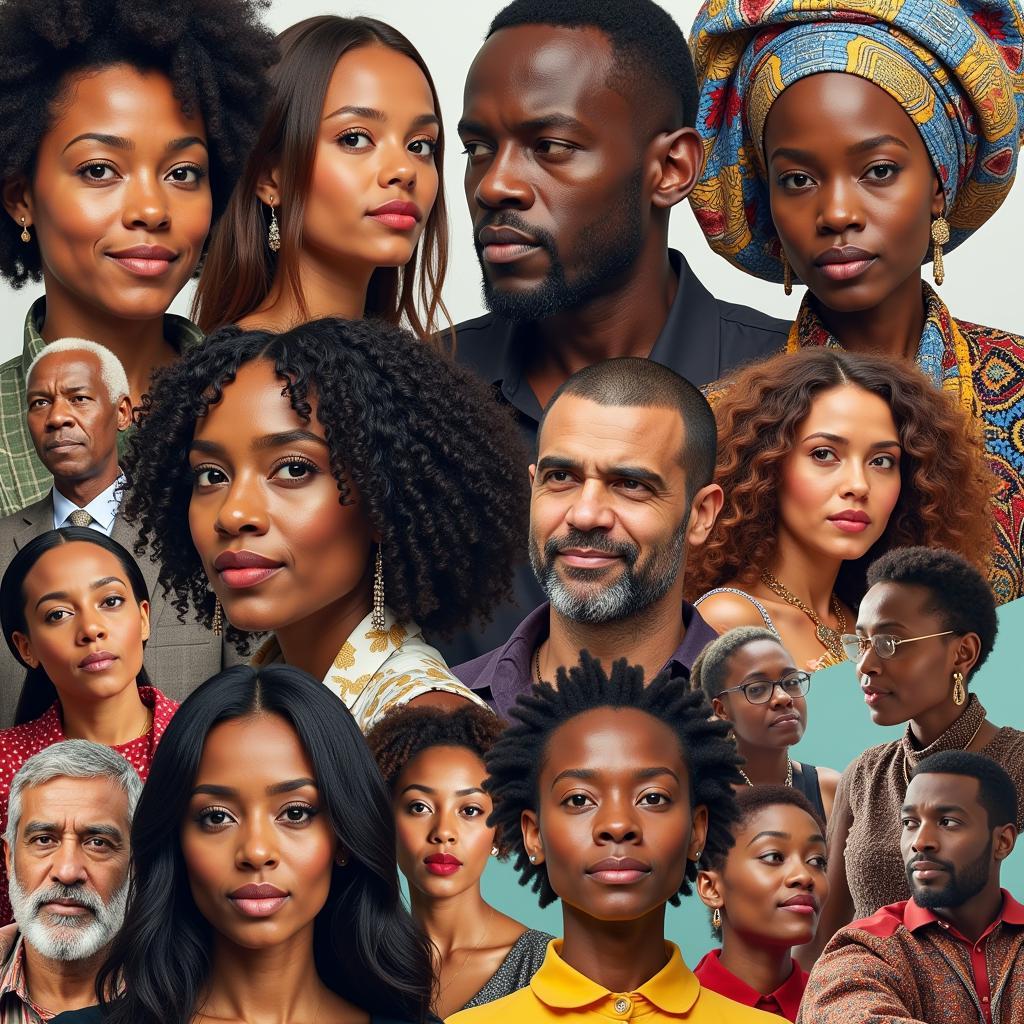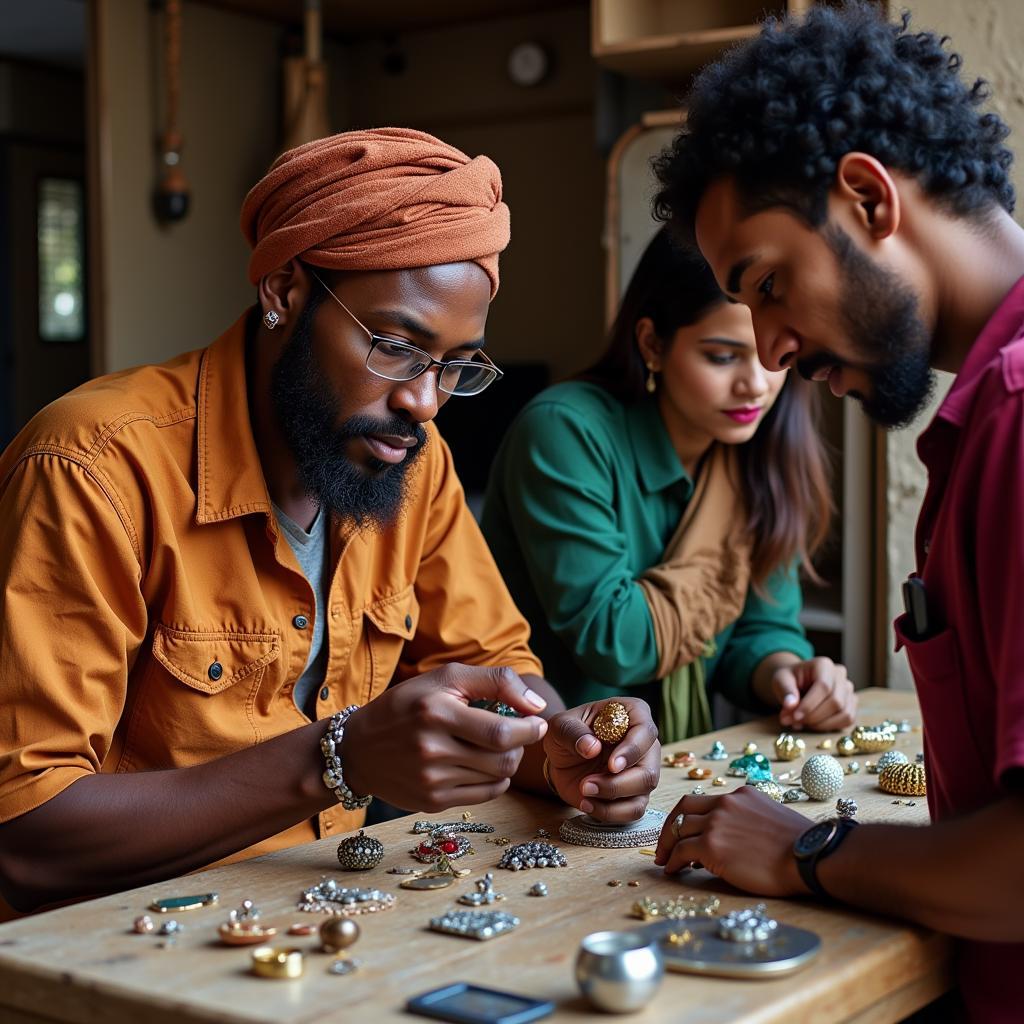Unveiling the Myth of the African Blockhead
The term “African Blockhead” is a derogatory and offensive term with racist origins. This article aims to debunk the myth surrounding this harmful stereotype, exploring the rich tapestry of African cultures, histories, and intellectual contributions. It’s crucial to understand the damaging impact of such terminology and replace harmful misconceptions with accurate and respectful knowledge.
The Racist Origins of “African Blockhead”
The term “African blockhead” emerged during the era of colonialism and the transatlantic slave trade. It was used to justify the enslavement and subjugation of African people by falsely portraying them as intellectually inferior. This racist ideology served to dehumanize Africans and rationalize the brutal exploitation they endured. The idea of a monolithic “African” identity further fueled this misconception, ignoring the vast diversity of cultures, languages, and intellectual traditions across the continent.
Challenging the Stereotype: African Intellectual Achievements
Contrary to the harmful “African blockhead” stereotype, Africa has a long and rich history of intellectual achievement. From ancient Egyptian mathematics and astronomy to the complex kingdoms of West Africa, the continent has been a cradle of innovation and knowledge. Consider the sophisticated architectural designs of Great Zimbabwe or the advanced metallurgical skills evident in ancient Nok terracotta sculptures. These examples demonstrate the ingenuity and intellectual prowess that has existed in Africa for centuries.
Mathematics, Astronomy, and Medicine in Ancient Africa
African civilizations made significant contributions to the fields of mathematics, astronomy, and medicine. Ancient Egyptians developed sophisticated mathematical systems used for land surveying, construction, and accounting. Their astronomical knowledge allowed them to create accurate calendars and predict celestial events. Moreover, traditional African medicine has a long history of utilizing natural remedies and developing sophisticated surgical techniques.
The Impact of Colonialism on African Education
Colonialism had a devastating impact on African education systems. Traditional forms of knowledge transmission were disrupted, and colonial powers often implemented educational systems designed to serve their own interests rather than the needs of African communities. This disruption contributed to the perpetuation of stereotypes like “African blockhead” by limiting access to education and distorting the narrative of African intellectual history.
Celebrating African Intellectuals and Artists
It is crucial to celebrate the achievements of African intellectuals and artists throughout history and in the present day. From Nobel laureates like Wole Soyinka and Nadine Gordimer to contemporary artists like El Anatsui and Yinka Shonibare, African creatives continue to make significant contributions to global culture and intellectual discourse. Highlighting these achievements helps to dismantle harmful stereotypes and showcase the rich tapestry of African talent.
The Importance of Reclaiming African Narratives
Reclaiming African narratives is essential in combating stereotypes like “African blockhead”. By promoting accurate and nuanced portrayals of African history and culture, we can challenge the dominant narratives that have perpetuated harmful misconceptions. This involves supporting African scholars, artists, and storytellers who are working to preserve and share their rich cultural heritage.
 Celebrating African Intellectuals and Artists: From Nobel Laureates to Contemporary Creators
Celebrating African Intellectuals and Artists: From Nobel Laureates to Contemporary Creators
Conclusion: Moving Beyond the Myth of the “African Blockhead”
The term “African blockhead” is a harmful relic of a racist past. By understanding its origins and actively challenging the stereotypes it perpetuates, we can move towards a more accurate and respectful understanding of African history, culture, and intellectual contributions. Let’s celebrate the richness and diversity of the continent and work together to dismantle harmful stereotypes that diminish the remarkable achievements of African people.
FAQ
- What does the term “African blockhead” mean? It’s a derogatory term used to falsely depict Africans as intellectually inferior.
- Why is it important to challenge this stereotype? It’s crucial to dismantle racist ideologies and promote accurate representations of African history and culture.
- How can I learn more about African history and culture? Explore reputable sources, engage with African scholars and artists, and support organizations promoting African heritage.
- What are some examples of African intellectual achievements? Ancient Egyptian mathematics, astronomy, complex kingdoms of West Africa, and contributions to art, literature, and science.
- How did colonialism impact African education? It disrupted traditional learning and imposed systems that often hindered African intellectual development.
- Who are some notable African intellectuals and artists? Wole Soyinka, Nadine Gordimer, El Anatsui, Yinka Shonibare, and many others.
- Why is it important to reclaim African narratives? To counteract harmful stereotypes and promote authentic portrayals of African history and culture.
Further Exploration:
- Explore the history of ancient African kingdoms.
- Learn about the contributions of African scientists and inventors.
- Discover the rich diversity of African art and literature.
If you need any further information or assistance, please do not hesitate to contact us: Phone: +255768904061, Email: kaka.mag@gmail.com or visit us at: Mbarali DC Mawindi, Kangaga, Tanzania. We have a 24/7 customer service team ready to assist you.


